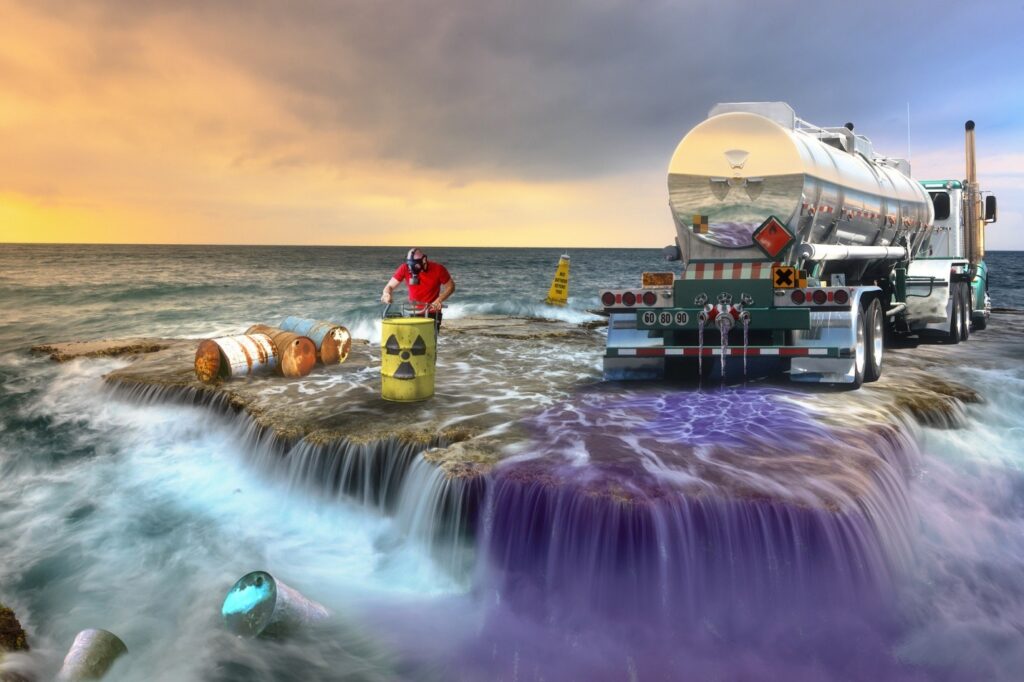Some Known Questions About Reclaim Waste.
Some Known Questions About Reclaim Waste.
Blog Article
Reclaim Waste Things To Know Before You Buy
Table of ContentsThe 5-Minute Rule for Reclaim WasteReclaim Waste Things To Know Before You Get ThisThe 3-Minute Rule for Reclaim WasteSome Known Facts About Reclaim Waste.Some Known Factual Statements About Reclaim Waste
Check out the types, events, and types of liquid waste. Domestic sewage waste refers to the waste and products from a residential septic system. This kind of waste is produced by human beings in residences, schools, and various other structures. This only consists of sewage-disposal tanks that have a drainpipe field. The appropriate administration and disposal of domestic sewage waste call for fluid waste to be transferred to a sewer therapy plant where the appropriate methods and equipment are related to purify and deal with waste.
Business waste usually includes potential hazards, such as combustible products or a combination of liquid and solid waste items, and needs an extra innovative and in-depth disposal process. The disposal of business waste normally involves the filtration of waste before transportation to guarantee risk-free and proper disposal. Hazardous waste is developed from results and overflow of industrial processes and manufacturing.
This sort of waste can not utilize the very same sewage administration transportation or procedures as septic or business liquids. The hazardous waste monitoring procedure needs the evaluation and testing of liquid waste prior to it undertakes the disposal process (liquid waste disposal melbourne). Overflow waste is the liquid waste that comes from overflow and excess stormwater in very booming locations or cities
Drainage waste can cause contamination and flooding if not handled correctly. Guaranteeing proper waste administration can protect against catastrophes and lower ecological injury.
The Only Guide for Reclaim Waste
Contact PROS Providers today to discover our waste administration and disposal services and the correct methods to care for the fluid waste you create.
(https://reclaimwaste1.carrd.co/)Do you understand what occurs to your water when you end, purge the bathroom or drain the washing machine? No? Well, it deserves knowing. This supposed 'wastewater' is not just a crucial resource yet, after treatment, will be launched to our land, waterways or the ocean. Utilized water from commodes, showers, bathrooms, kitchen sinks, washings and industrial processes is recognized as wastewater.

water utilized to cool machinery or clean plant and tools). Stormwater, a type of wastewater, is overflow that flows from agricultural and urban locations such as roofs, parks, yards, roads, courses and seamless gutters right into stormwater drains, after rainfall. Stormwater flows neglected directly to neighborhood creeks or rivers, ultimately getting to the sea.
Some Of Reclaim Waste
In Queensland, the majority of wastewater is dealt with at sewer therapy plants. Wastewater is carried from domestic or industrial sites via a system of sewage systems and pump stations, known as sewage reticulation, to a sewage therapy plant.
The Department of Natural Resources suggests city governments regarding managing, operating and maintaining sewerage systems and treatment plants. In unsewered areas, city governments may require homeowners to install private or household sewer therapy systems to deal with domestic wastewater from bathrooms, kitchen areas, shower rooms and laundries. The Department of Natural Resources authorizes making use of house systems when they are shown to be effective.
The majority of stormwater receives no treatment. In some new communities, treatment of some stormwater to eliminate clutter, sand and crushed rock has actually started utilizing gross pollutant traps. Wastewater therapy takes place in four phases: Gets rid of solid matter. Larger solids, such as plastics and various other items incorrectly discharged to sewers, are gotten rid of when wastewater is travelled through displays.
Wastewater then streams right into large storage tanks where solids settle and are removed as sludge. Oil and residue are skimmed from the surface. Makes use you can find out more of small living microorganisms knows as micro-organisms to damage down and eliminate remaining dissolved wastes and great particles. Micro-organisms and wastes are included in the sludge. Removes nitrogen and phosphorus nutrients that might trigger algal blossoms in our waterways and intimidate marine life.
Reclaim Waste - The Facts
Nutrient elimination is not offered at all sewage treatment plants since it needs costly specialist tools. Clear liquid effluent created after therapy might still have disease-causing micro-organisms - liquid waste removal melbourne.

This generally indicates wastewater needs to be dealt with or impurities eliminated before it can be discharged to waterways. Many wastewater flows right into the sewage system. Under the Act, city governments carry out authorizations and licences for ecologically relevant tasks (Periods) entailing wastewater releases that might have a local influence. The division administers authorizations and permits to ERAs entailing wastewater releases that may have a local or statewide influence.
Fascination About Reclaim Waste
Otherwise, samples are considered research laboratory analysis. Often several examinations are needed to establish the levels of each of the various pollutants such as oils, heavy steels and chemicals in water. Surveillance supplies factual information concerning water high quality and can validate that permit problems are being met. The details acquired through monitoring supplies the basis for making water quality decisions.
Report this page